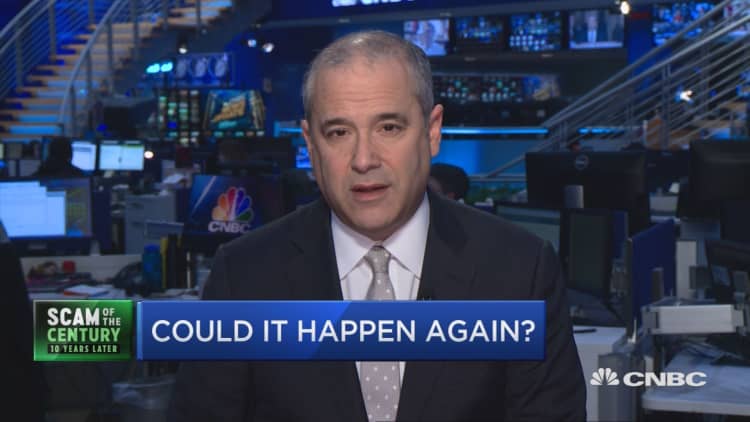Dishonest advisors or brokers may not be the norm. When they turn up, though, hold on to your pocketbook.
In the latest monthly list of disciplinary actions taken by the Financial Industry Regulatory Authority, several cases involve brokers who it said put client money in unregistered or inappropriate investments, used client funds for personal purchases or otherwise defrauded investors who trusted them.
The self-regulatory organization, commonly called FINRA, oversees about 630,000 brokers — some of whom also are registered with the Securities and Exchange Commission — and the firms that employ them.
The latest rundown shows that FINRA recently banned 11 people from working in the securities industry and suspended 16.
While getting sanctioned is the end of the story for many of those accused of violating rules, others face additional regulatory and legal woes due to the severity of the alleged misdeeds.
For example, FINRA barred Kristian Gaudet of Larose, Louisiana, for refusing to provide testimony related to findings by his former brokerage, Ameritas Investments, that he had allegedly used client funds for personal use. Neither admitting nor denying guilt, Gaudet signed a letter agreeing to the ban.
Gaudet has been jailed since Jan. 31 arrest by the Lafourche Parish sheriff's office, charged with two counts of felony theft.

He is accused of stealing nearly $1 million in investment money from two clients, according to the sheriff's office. Gaudet also is accused of using client funds intended for insurance policies to instead buy real estate for himself. He operated two business in southern Lousiana: Kris Gaudet Insurance and Financial Services, and Winston Financial.
By last week, after eight more clients had come forward with similar stories, the number of charges had grown to 10 counts each of felony theft and money laundering, as well as racketeering and exploitation of the infirm.
While Gaudet's bail is set at $680,000, with the condition that he wear an ankle monitor if he posts bail, it was as high as $4.85 million at one point in February.
"The charges brought are all regarding investment fraud," said Lt. Brennan Matherne, public information officer for the sheriff's office.
More from Personal Finance:
Five money mistakes that can destroy a marriage
Student loan debt is a hurdle for many would-be mothers
Buying a home: almost impossible with student loan debt
The day of Gaudet's arrest, his license was suspended and the Louisiana Department of Insurance issued a cease-and-desist order. In addition, the FBI is investigating.
Gaudet's attorney did not respond to a request for comment.
In a separate FINRA case involving another banned broker, bitcoin and an overseas U.S. fugitive played a central role in investors losing their money.
Daniel Todd Levine, of Englewood, Colorado, signed a letter with FINRA agreeing to the ban, neither admitting or denying guilt.
FINRA had been investigating allegations that Levine engaged in undisclosed outside business activities, solicited a customer to borrow funds for an outside business activity and executed unauthorized trades, among other alleged misconduct.
As it turns out, Levine was allegedly bamboozled by his brother — who is living in Europe and has been a fugitive from U.S. law enforcement since at least 2005, according to the Colorado Division of Securities.
The agency alleges that Levine offered people a chance to invest in discounted bitcoin with the promise of significant returns. The idea was that his brother would purchase bitcoin from a private seller overseas at a discount of 60 percent to 90 percent. Levine was expecting about $2 million in commissions, state documents show.
Altogether, investors wired about $1.5 million to Levine's brother, who allegedly absconded with the money.
Employed with Morgan Stanley at the time, Levine resigned in mid-2018 as the firm investigated the situation, according to FINRA documents. He then was hired at another company, First Financial Equity, yet was soon fired for allegedly failing to disclose a past regulatory action against him as required.
Levine has repaid some of the money to the investors, although no amount is specified in official documents. Without admitting or denying guilt, he also signed a consent order barring him from Colorado's securities industry.
Efforts to reach Levine were unsuccessful. The attorney representing him for the FINRA case did not respond to a request for comment.


